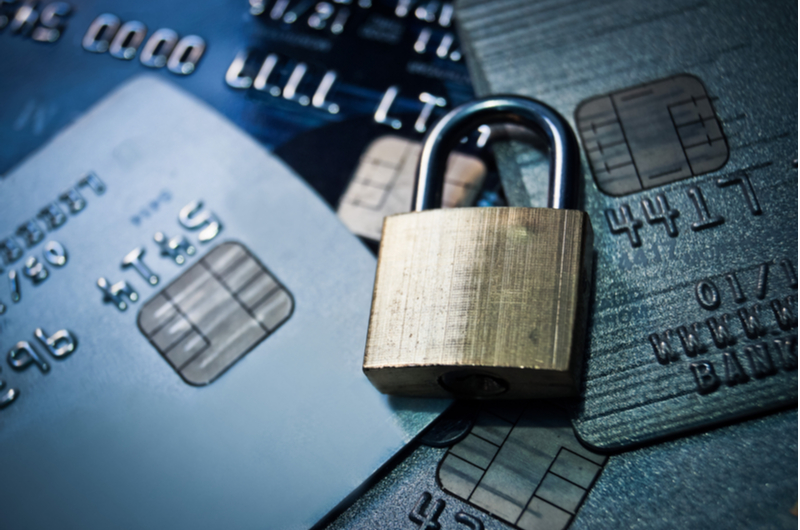The definition of identity theft is reasonably self-explanatory to understand. Identity theft involves the crime of another person obtaining information belonging to you for the purposes of taking over your finances, draining your bank accounts, committing fraud or any other number of unauthorized transactions and/or events. Identity theft is much harder to comprehend on a conceptual and ethical level for most U.S. residents. The truth is even though a person knows identity theft is possible, the possibility of it actually happening to him or her is considered unlikely or even laughable.
Unfortunately, identity theft can happen to anyone in the U.S. in 2021, especially after the COVID-19 pandemic opened up new ways for cyber criminals to attack the general public. What are common ways in which identity theft is committed? Do different types of identity theft exist today? Reducing the risk of identity theft is completely possible, and even eliminating it is an option if preventative measures are thoroughly engaged. Read ahead to learn crucial information about identity theft, how it happens and ways to prevent it in 2021.

Identify Theft – What Is It?
Understanding identity theft generally involves comprehending its fundamental definition, its aftermath and the ways in which it damages lives. Fully understanding identity theft also requires understanding the purpose(s) behind those who commit the act. At its fundamental level identity theft is a criminal act involving the theft of an individual’s personal, financial or other information for the purpose of committing a fraudulent act. Typically one person hacks into the account or accounts of another person and obtains the victim’s personal/financial information such as a social security number (SSN), driver’s license number, home address, bank accounts, credit cards and anything else they are able to steal. Unfortunately in 2021 mass identity theft is possible if a perpetrator hacks into a banking, subscription, streaming or phone service system and steals the information of all applicable customers in the hacked system.
Essentially the criminal uses your information to commit crimes in your name and get away with them. Multiple reasons to do this exist. For example, while most identity theft crimes are used for fraudulent financial gain, sometimes it is used to protect the identity of wanted criminals and avoid arrest while traveling. Other times it might be used to gain free health insurance or food stamps.
Identity theft is severely damaging and often takes years for a victim to fully recover from its consequences, if at all. It is also often hard to prove, especially when the criminal is skilled and experienced at this type of crime. Credit scores are quickly damaged. Victims are also commonly multiple, even if only one identity is stolen. For example if you are married and/or have a family, the adverse consequences of your stolen identity are likely to affect your spouse and family members as well.
Types of Identity Theft
Financial identify theft is the most common type but many types unfortunately exist in modern times. The purposes of financial identity theft are to drain your bank accounts, use your credit cards, take out loans, open new credit cards and commit a variety of other financial crimes to the benefit of the perpetrator(s). SSN identity theft is also common. Obtaining the SSN of another person allows the perpetrator(s) to run up bills without paying them as well as receive disability, medical, food assistance and other benefits. Additional types of identity theft include:
- Medical (to obtain free healthcare/insurance).
- Synthetic (to create a brand new hybrid identity).
- Child (to use a child’s SSN to obtain housing, jobs, loans, etc.).
- Tax (to intercept your tax refunds).
- Criminal (to avoid arrest/a warrant summons).
COVID-19 & Identity Theft – How Criminals Are Taking Advantage
Criminals are taking further advantage of victims since the COVID-19 pandemic hit the U.S. in early 2020. Multiple stimulus check packages and extended unemployment benefits created a whole new set of opportunities for criminals to steal money from innocent victims. COVID-19-related identity theft happens most frequently to the elderly, making the crimes even more abhorrent.
How Does Identity Theft Happen?
Some identify theft is not committed in the digital/online realm. Some thieves pilfer your information by literally stealing discarded bills, prescription bottles, insurance papers and more directly from your outside trash bins. Identity theft committed online is committed using a variety of cyber-crime-related techniques. Discarded or stolen computers and/or hard drives are scanned for information. Online public records storage sites are hacked. Public computers at libraries or internet cafes are digitally scavenged for information left online or hard drives by previous users. Social media sites are commonly and frequently victimized by identity thieves, as are cell phones, web cameras and more.
Identity Theft – Is It My Fault?
Victims of identity theft often blame themselves for having their identities stolen. It is indeed possible to leave yourself vulnerable to such an act without knowing it. Identity thieves are skilled, however and know how to obtain private information even when it is password protected or encrypted. Blaming yourself for identity theft is illogical and useless. The important thing to do is learn the best ways to prevent identify theft from happening.Best Ways to Prevent Identity Theft & Repair Damages
The first way to mitigate/prevent identity theft is to obtain a free copy of your credit report from AnnualCreditReport.com. Sometimes this is the only way to know you were victimized. For the indefinite duration the COVID-19 pandemic all three major credit bureaus are allowing all U.S. residents to obtain free credit reports once a week.
The Federal Trade Commission (FTC) website IdentityTheft.gov helps repair damages and regain your identity/credit rating. Credit monitoring services alert you to suspicious activity on your credit reports. Identity theft protection services help you prevent and recover from identity theft. The top identity theft protection and credit monitoring services available in 2021 are: